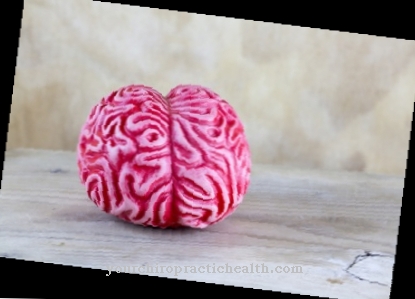The stomach makes noises when we are hungry. But what does this mean Stomach growling? Can it indicate illness or is it always just a sign that it is time to have your next meal?
What is that stomach growl?

Another term for stomach growling is Starvation contraction. In medical terminology it is called Borborygmus. In fact, the growl usually occurs when the stomach is empty. The loud hunger alarm reminds us that the stomach should be filled.
The stomach walls contract and a mixture of air and gastric juice swirls in the stomach. Due to the large resonance body, this generates a loud, audible noise. A growling stomach as the only present symptom is not a disease and does not indicate a disease. There is also no drug that can eliminate the rumbling stomach.
The reason for the noises: the stomach cleans itself. It can only guarantee this if it constantly empties itself. To achieve this, the stomach muscles move towards the intestines. In practice, this is like stroking the stomach. The principle is very similar to that of a bagpipe. Here, too, air is pressed through a cavity by contraction and sounds are created.
Function & task
In a healthy person, the rumbling stomach indicates that he has not eaten enough. Like bowel movement, stomach movement is a migrating motor complex, or MMC for short. This is a recurring pattern of movement.
The period of a cycle in the stomach is one and a half to three hours and can be divided into three phases: 1. No activity, 2. Light movements, 3. Strong movements with air contractions. The phases are then repeated.
The stomach cannot turn off the function of emptying. It always runs through this pattern, even if there is currently no solid food in the stomach. So the growling basically means that everything is fine with the functioning of the stomach as long as there are no further complaints.
For many people, stomach growls are aggravated when they smell or see something good to eat. Sometimes the simple idea is enough to make the stomach growl.
For people who have stomach growls all day, it often helps to split their meals into several, small servings. While on a diet, growling is especially troublesome for many. Again and again they are reminded that they are hungry. Even if that is exactly what nature wants, it may be advisable to use low-calorie fillers, such as flea seeds, chia seeds or flax seeds. These swell up due to the liquid and create the necessary volume to calm the stomach.
Numerous experts are of the opinion that a rumbling stomach would be a sign that the organ can finally take a rest phase. The recommendation here is not to eat something immediately at the first growl, but to wait a while. This is how the stomach regenerates. However, this is only recommended if the person concerned does not generally eat little. It is also possible to calm the stomach with a few sips of warm water without eating anything.
Illnesses & ailments
If the stomach growling occurs in combination with pain in the upper abdomen, there may be an inflammation of the stomach lining. In this case, the growl feels duller than the usual growl as everyone knows it. The pain is called fasting pain. It is good practice to first avoid all irritants such as coffee, nicotine and alcohol. Milk often alleviates the symptoms. If this does not subside after a few days, you should definitely consult a doctor. It must be clarified whether there is a demonstrable organic cause.
If the doctor does not find any evidence, it can also be an irritable stomach. In some cases, increased mental stress triggers an increase in motor tone. This can also cause stomach growling without hunger being the cause.
Even hunger itself can cause stomach irritation if we eat too little over a long period of time. Even if we eat too seldom, the stomach may not be adequately buffered. The chyme is not nearly as acidic as the gastric juice. Buffering in this case is the raising of the pH value by the food to be digested.
Apart from the possible irritation, too little food intake can lead to relaxation of the stomach entrance. It no longer closes properly and stomach acid can rise up in the esophagus. This will show up as heartburn. Relaxation can, even without disturbing the basic functions, enable the rumbling stomach to become milder or even to stop.
Rumbling in the stomach can sometimes be mistaken for noises coming from the intestines. The upper parts of the intestine in particular feel and sound like a growling stomach. If the intestine growls, it is possible that there are digestive problems that should be examined more closely. Often it is food intolerances that trigger increased activity of the intestinal peristalsis. The noises are caused by the movement of the bowel in combination with increased gas formation. Even if the stomach and intestines growl at the same time, it is difficult to separate them from each other.
























.jpg)



